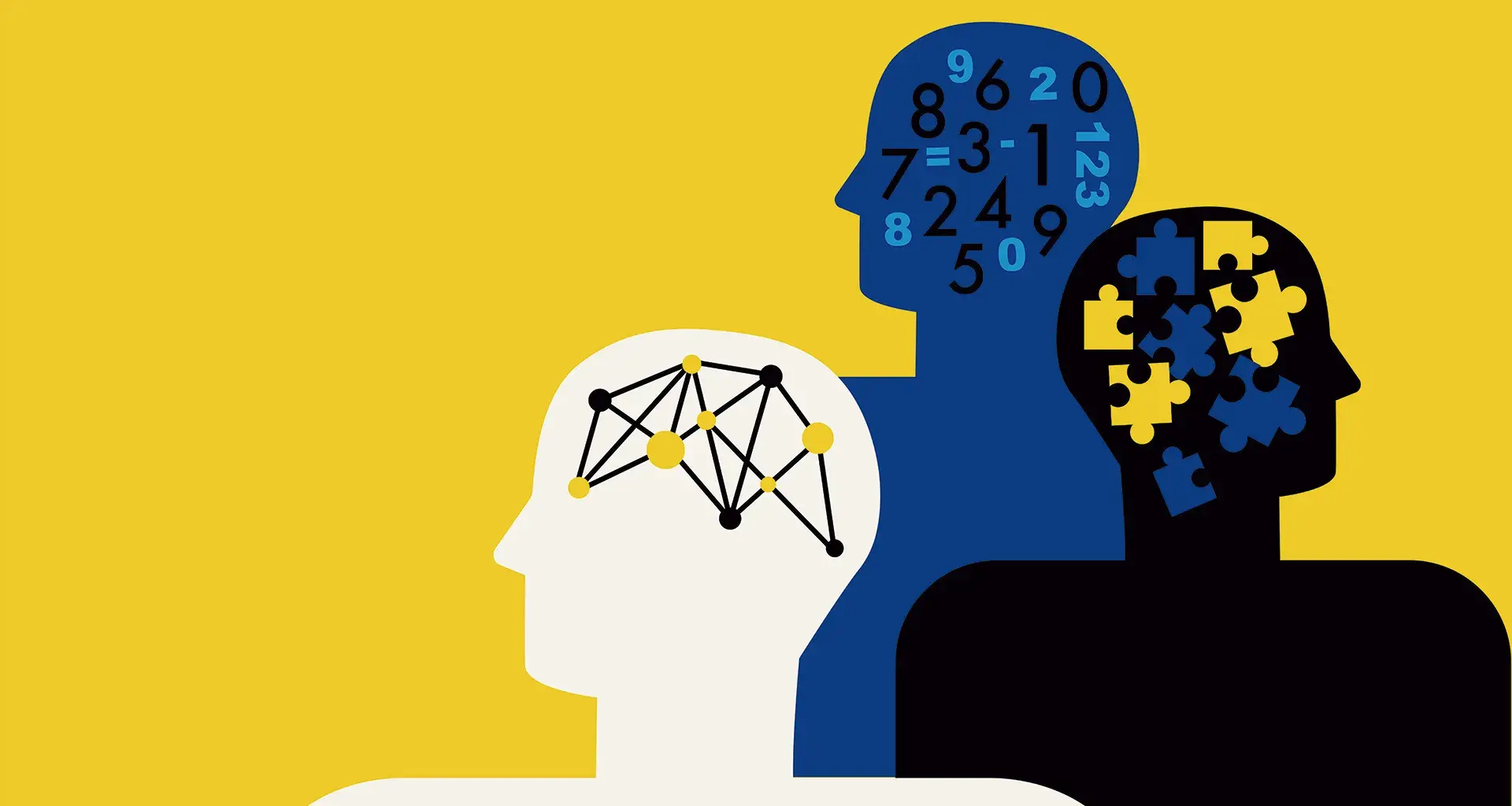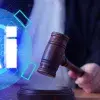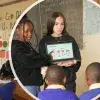There was no cake that day, but there were plenty of hugs, congratulations, and company. “They thought of me and made me feel important.”
Joaquín Cerón was 22 years old when he celebrated his birthday on campus for the first time, surrounded by others. According to Joaquín, that is one of the most memorable moments of his time at Tec de Monterrey.
A graduate of the Innovation and Development Engineering program at the Puebla campus, he faced academic and social difficulties from the first semesters due to his Autism Spectrum Disorder (ASD) diagnosis.
“It was hard for me to apply the concepts in my coursework and exams. I didn’t have any friends because it was difficult for me to relate to my classmates. I remember feeling frustrated, overwhelmed, and isolated,” he says.
The situation changed during his fifth semester, late in 2020, when he joined Surfeando la Neurodiversidad (Surfing Neurodiversity), a program implemented by the Student Wellbeing area at Tecnológico de Monterrey.
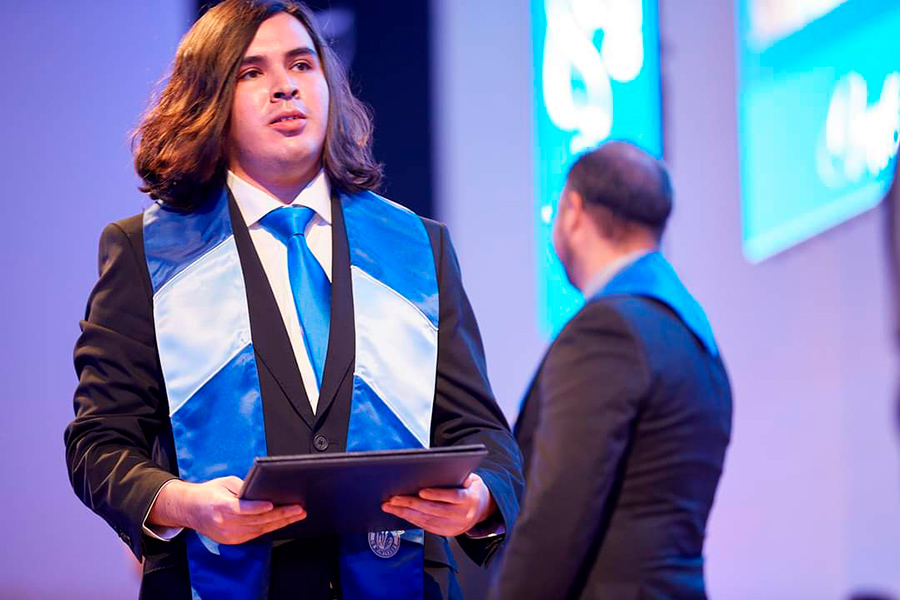
Academic and social support
Surfeando la Neurodiversidad is a program designed for students with an official Autism Spectrum Disorder (ASD) diagnosis, as in Joaquín’s case.
Each student receives support from a team of two students trained in peer mentoring: one with an academic focus and the other with a social focus.
The student mentors receive prior training through a Peer Mentoring Diploma program (PEER) and are referred to as surfers, explains Blanca Rivera, Director of Student Wellbeing and Mentoring at the Tec’s Puebla campus.
“I had two types of surfers, one who helped me academically with homework and school questions, and another who provided social support, someone I could talk to, feel emotionally supported, and more at ease,” Joaquín says.
He met regularly with his surfers for four semesters. Juan Carlos helped him with academics, while Juliana, Rogelio, and Alejandro helped him socially.
The sessions included time to resolve questions about the subjects, chat, or spend time together in cafeterias or during campus activities.
Part of the support focused on helping to manage moments of anxiety or emotional overload. Joaquín recalls that during moments of anxiety, his surfers provided a safe space to talk and sort through his thoughts.
“Thanks to Alejandro, for example, I felt listened to whenever I was worried. His words reassured me,” he says.
Surfeando la Neurodiversidad at the Tec
“The program began as a pilot project during the 2019 August-December semester at the Monterrey campus,” says Grecia Tovar, National Student Wellbeing Manager.
“The initial case involved a student with an autism spectrum diagnosis who experienced both academic and social challenges.” Based on that experience, a support structure was developed that was formalized later.
The program aims to help Neurosurfer students manage and develop socio-emotional skills, build interpersonal relationships, and improve responsibility, confidence, adaptability, communication, and problem-solving skills.
It is initiated when a mentor, teacher, or campus staff member identifies that a student could benefit from a support network.
From that moment on, the Student Wellbeing area initiates a protocol: the student is interviewed, teachers are notified, and the family is contacted.
“Its goal isn’t to reduce students’ academic load, but rather to create more favorable conditions for them to tackle their challenges with less stress,” explains Tovar.
“Our goal is to create more favorable conditions for students to tackle their challenges with less stress.” – Grecia Tovar
The team making up a support program is composed of:
- Neurosurfer: a student diagnosed with ASD who receives both social and academic support.
- Surfer: graduates of the PEER program equipped with communication, empathy, emotional intelligence, and coaching skills, who provide support to the neusosurfer.
- Emotional counseling: a team of Tec counselors who provide emotional support and reassurance.
- Student mentor: the person who is the first point of contact for the student neurosurfer. The mentor assists the rest of the team in providing support.
Follow-up sessions involving the student, surfers, and the family take place throughout the semester. At the end of the program, the fulfillment of the objectives is assessed, and a decision is made regarding the continuation of support.
Surfers are assigned based on academic and social compatibility. If the student is pursuing an engineering degree, the goal is for the academic surfer to have a similar background.
Social surfers are often involved in cultural, athletic, or student leadership activities.
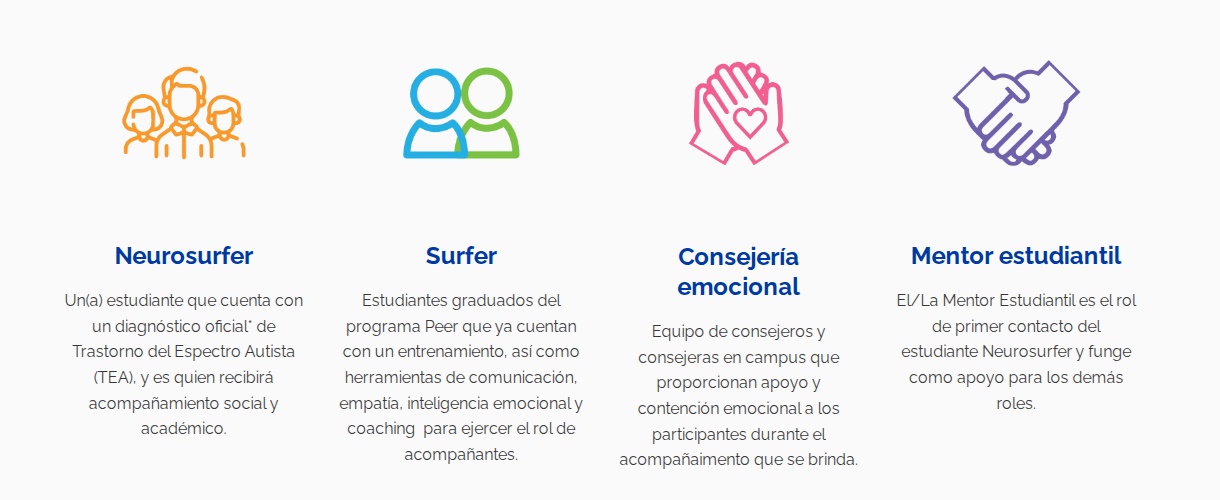
A program that produces results
Joaquín, who is now a Tec graduate, reported an improvement in his academic grades while participating in the program. In 2022, his grades ranged between 85 and 90. By 2023, he achieved averages of 95 and 96.
The graduate of the Innovation and Development Engineering program also began participating in campus activities that he had not attend before.
“We saw him go to his first HiTec, enjoy live music, and take part in events with lights and sound, things that previously made him very anxious. He played foosball, socialized... The change was impressive,” recalls Blanca Rivera, Director of Student Wellbeing and Mentoring at the Puebla campus.
“I’d never celebrated my birthday with anyone before.” – Joaquín Cerón
One story that Joaquín shared was about his 22nd birthday, when he received greetings and birthday wishes from his surfers. “There wasn’t any cake, but there was something better. They made space for me in their schedules. And that’s something I’ll never forget.”
In April 2023, he was invited to speak at the Neurodiversity Symposium organized at the Tec’s Querétaro campus, where he shared his experience in the program.
“I used to have a hard time applying the concepts of the courses and felt overwhelmed. But thanks to this support network, I was able to move forward and grow,” he says.

Surfeando la Neurodiversidad is now active at 10 Tec campuses
Blanca Rivera supported Joaquín from his first moments in the program.
“Communication with Joaquín was limited in the beginning, He didn’t answer his phone and replied to messages only occasionally. His mother was instrumental in establishing the initial bond,” she recalls.
During the pandemic, support was provided remotely. Joaquín showed interest in topics related to COVID-19, which helped him connect more easily with his surfers.
Grecia Tovar points out that one of the objectives of the program is to “break down barriers so that students can realize their potential within the university setting.”
In addition to benefiting the students they support, the program has also had an impact on the surfers, who view mentoring as a formative experience.
At the Puebla campus, Alejandro Alfonso Ubeto, one of Joaquín’s surfers, received the Tec’s LIFE Borrego de Oro Award for his support work.
According to those in charge of this initiative, the functioning of the program requires the coordinated participation of students, families, faculty, mentors, academic leadership, and the Student Success area.
“Support includes not only academic but also social and emotional aspects,” says Blanca Rivera.
The program currently operates on 10 Tec de Monterrey campuses and has supported more than 50 students. Most participants have been men exhibiting traits associated with autism spectrum diagnoses.
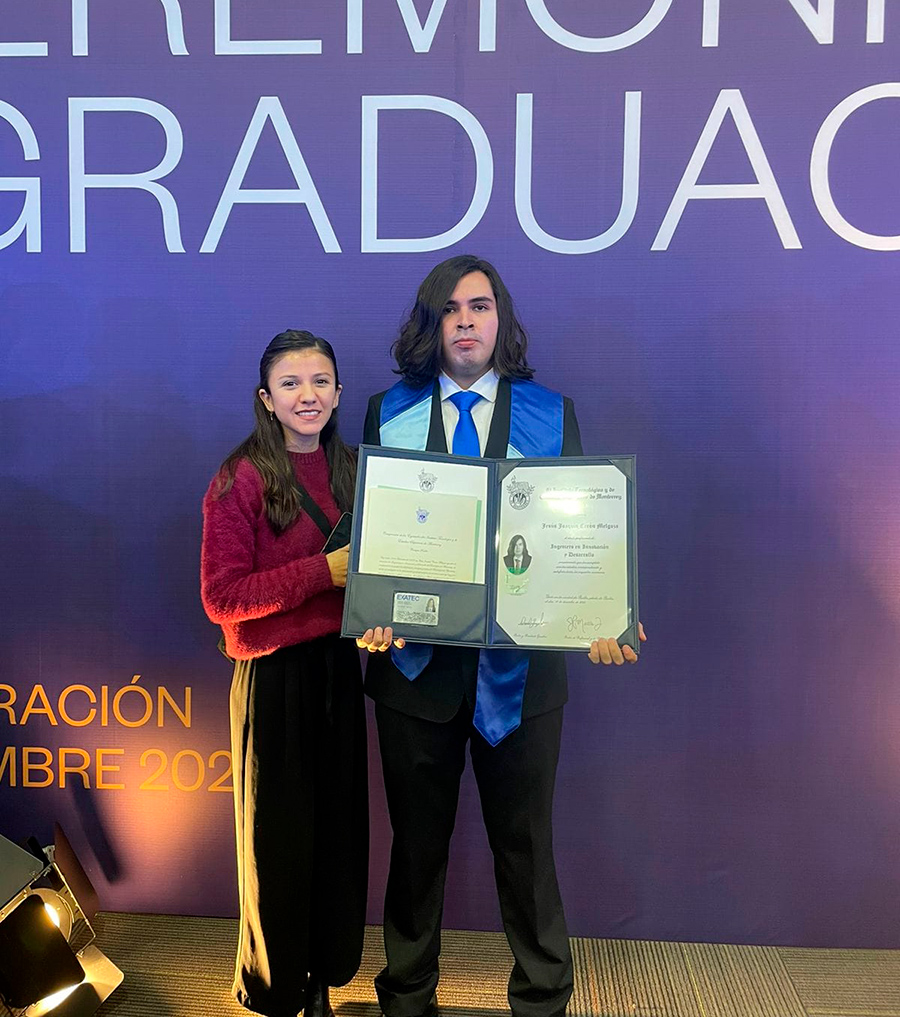
Inclusion for building the future
Joaquín Cerón has graduated from the Tec’s Puebla campus, and today his dream now is to become a leader in the field of research and development and an innovator who creates real solutions to problems affecting thousands of people.
“I think science is essential for both the country and the world,” says the Innovation and Development Engineering graduate.
While he does not have a specific project in progress yet, his focus is on improving people’s quality of life, whether through technologies that improve air and water quality or other key aspects of social wellbeing.
Joaquín sees himself contributing to a more livable, equitable, and just world through science and exploring areas of development to advance his professional journey by surfing neurodiversity.
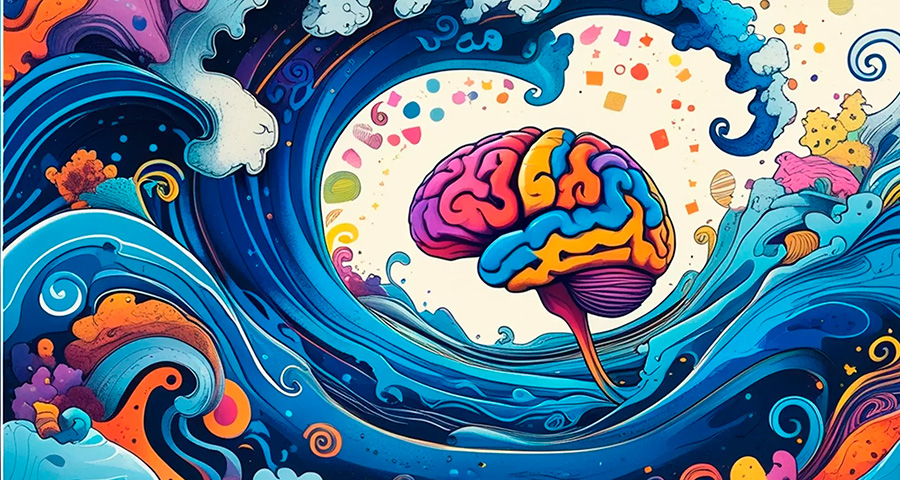
YOU MAY BE INTERESTED IN:

